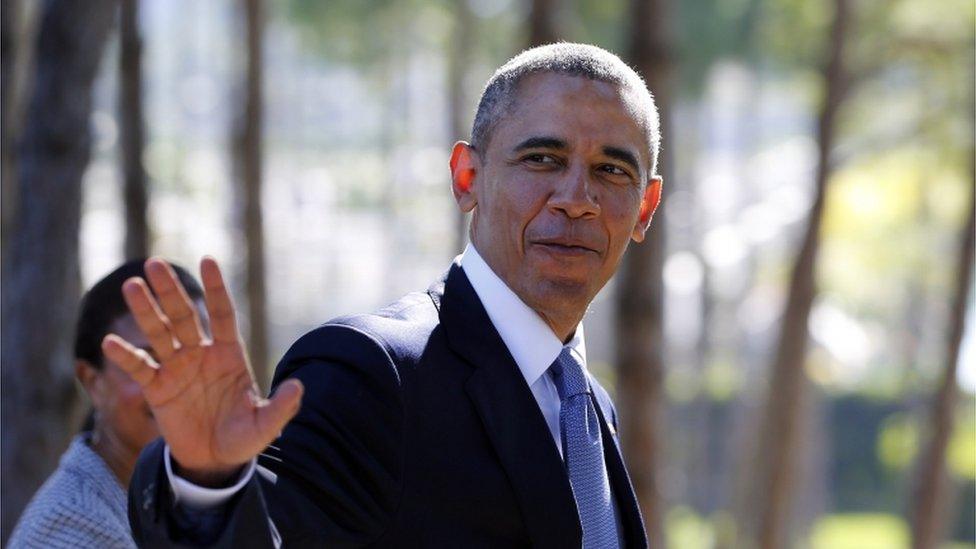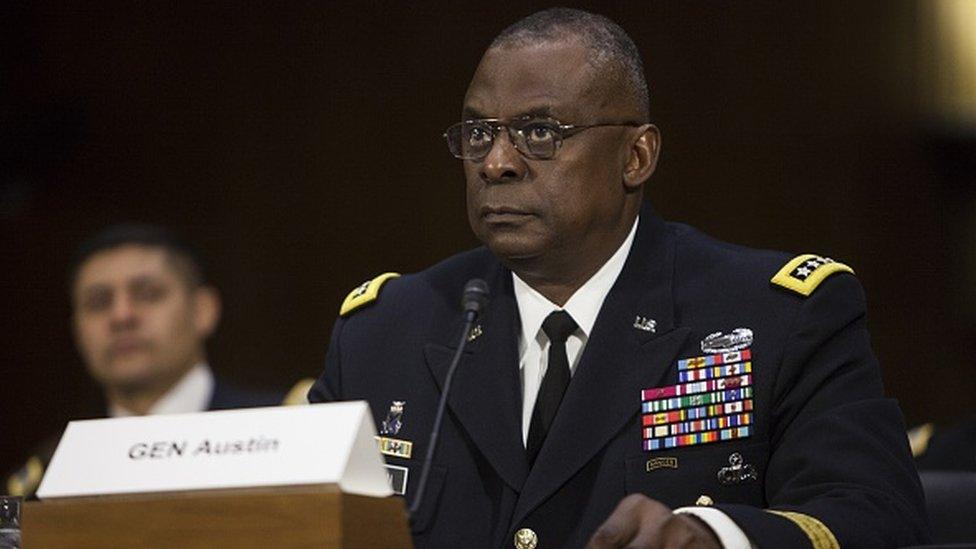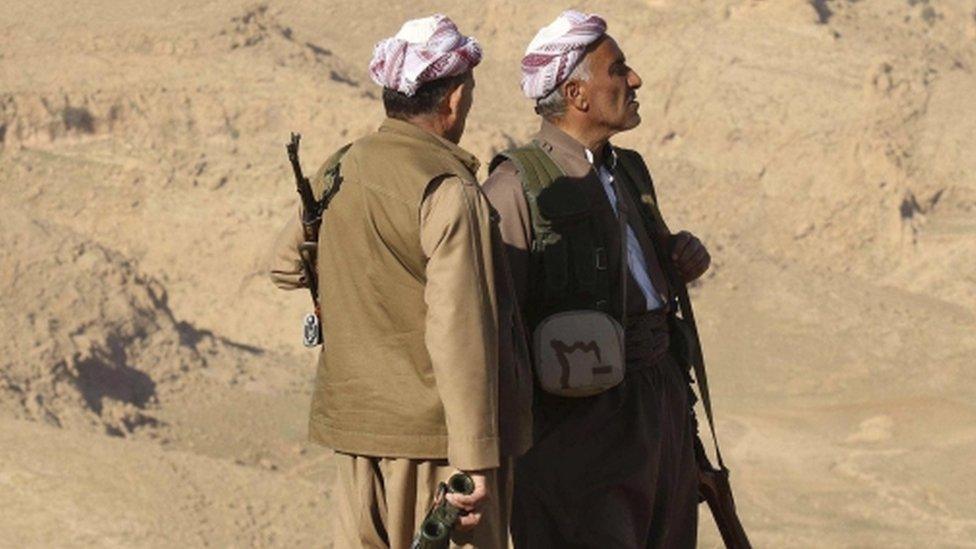Will Paris force Obama to change tack?
- Published

President Obama has taken a cautious approach to the threat of IS
It would be overdoing it to say that Barack Obama has been dragged kicking and screaming towards involvement in defeating the so-called Islamic State (IS) - but everything about the administration's policy and body language has suggested a wariness towards the fight and a weariness to those demanding something more.
The question rumbling round Washington DC like rolling thunder these past 48 hours is whether in the wake of the hideousness of Paris, the president of small incremental steps is prepared to become the president who throws everything at the problem.
There will be books written, I feel sure, that will chart the development of his policy towards IS (a book on his successes in the fight looks as though it might be a rather slim volume; the book on the shortcomings rather fatter) - but I am going to do the rapid precis of it.
And we are going to go quickly:
Let's make our starting point August 2014 when there was the confession from the president that "we don't have a strategy yet", external for dealing with IS.
The strategy did come some weeks later. The mission would be to "degrade and ultimately destroy", external IS.
Keen students of textual analysis would later notice a subsequent subtle shift to "degrade and defeat".
There would be no US boots on the ground.
Instead Americans would train rebel groups to lead the fight - a policy that has failed ignominiously.

General Austin had to admit few fighters had been trained to fight jihadists on the ground
Can you imagine the humiliation for General Lloyd Austin, the head of US Central Command, when he had to tell a congressional committee that the $500m (£330m) programme had only resulted in a handful of fighters, external battling the jihadists.
"We're talking four or five," he told the Armed Services Committee.
But then came another amendment that maybe some American troops would be on the ground doing training specifically.
Now they are to be bolstered with about 50 US special forces to be deployed in Syria to assist the rebels.
Risk of overstating threat
But let's dwell a little longer on something the president said in February, when he urged people not to overstate the significance, external of IS by "over-inflating their importance".
And he said it was wrong to suggest "in some fashion that they are an existential threat to the United States".
Existential threat. Well I am sure the US band The Eagles of Death Metal, would disagree with that having scarpered for their lives as the gunmen opened fire in the Bataclan Theatre in Paris's 11th district, killing dozens and dozens of concertgoers.
To state the obvious, what Paris brutally underscored is that IS now poses a serious threat way beyond the borders of Syria and Iraq.
And it may not be the existential threat of mutually assured destruction from Cold War days when intercontinental ballistic missiles threatened to flatten whole cities.
But it is a very 21st Century existential threat. It is a threat to the way people live.
The attackers were able to plan multiple, simultaneous attacks. So the question is: if this isn't a game changer, what is?
Two scenarios
This weekend speaking to people in Washington close to the administration I have heard two different scenarios advanced.
The first is that the pressure on the president to show that he is serious about putting IS out of business is going to intensify massively.

Will the US join forces with the Kurdish Peshmerga?
Not only do you have the French wanting to intensify the campaign against IS, you have the same political imperative in Moscow where President Putin will not want to appear weak following the downing of the Russian jet over Sinai.
What this will mean, say some from the president-has-to-leap school, is that there will be more than just air strikes, there will be a commitment to retake Raqqa, the de facto IS capital - and, yes, that might involve Western ground troops fighting alongside the Kurdish Peshmerga and other anti-IS forces.
And then there is the other scenario from those who have worked with Barack Obama and know his mindset: that a wary president will just move the dial one reluctant notch.
Given past form, that must be considered the more likely.
But we should learn in the coming days whether the man with the most powerful armed forces in the world does believe that after Paris, the game has changed.